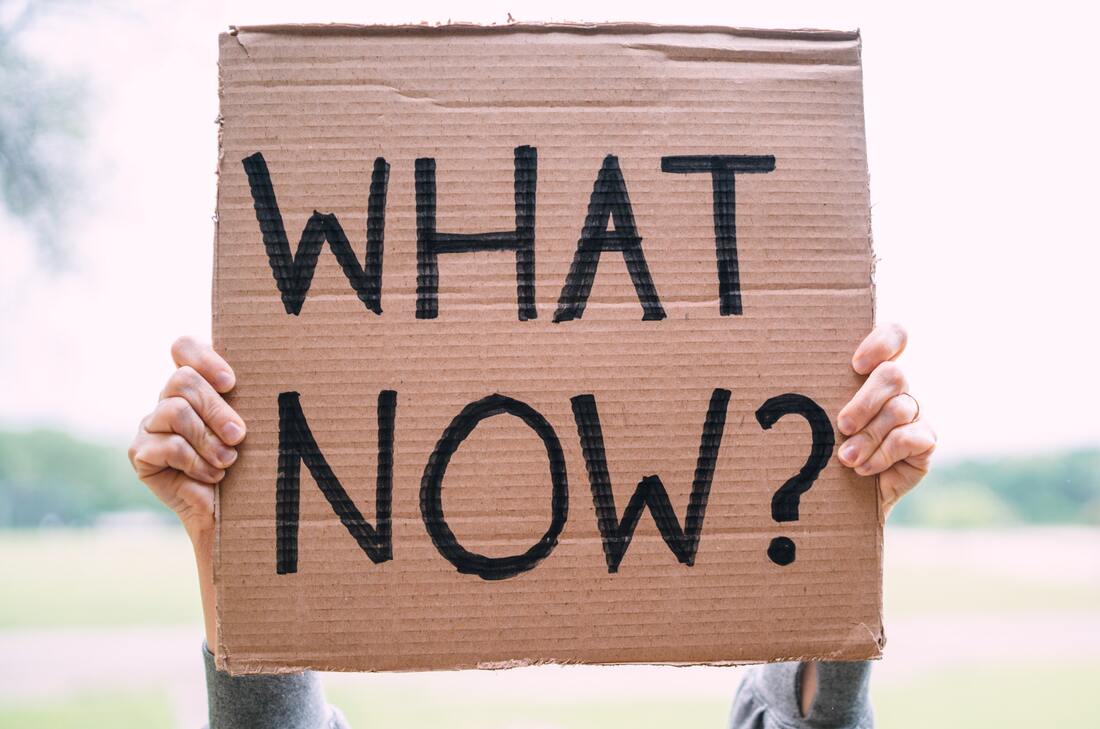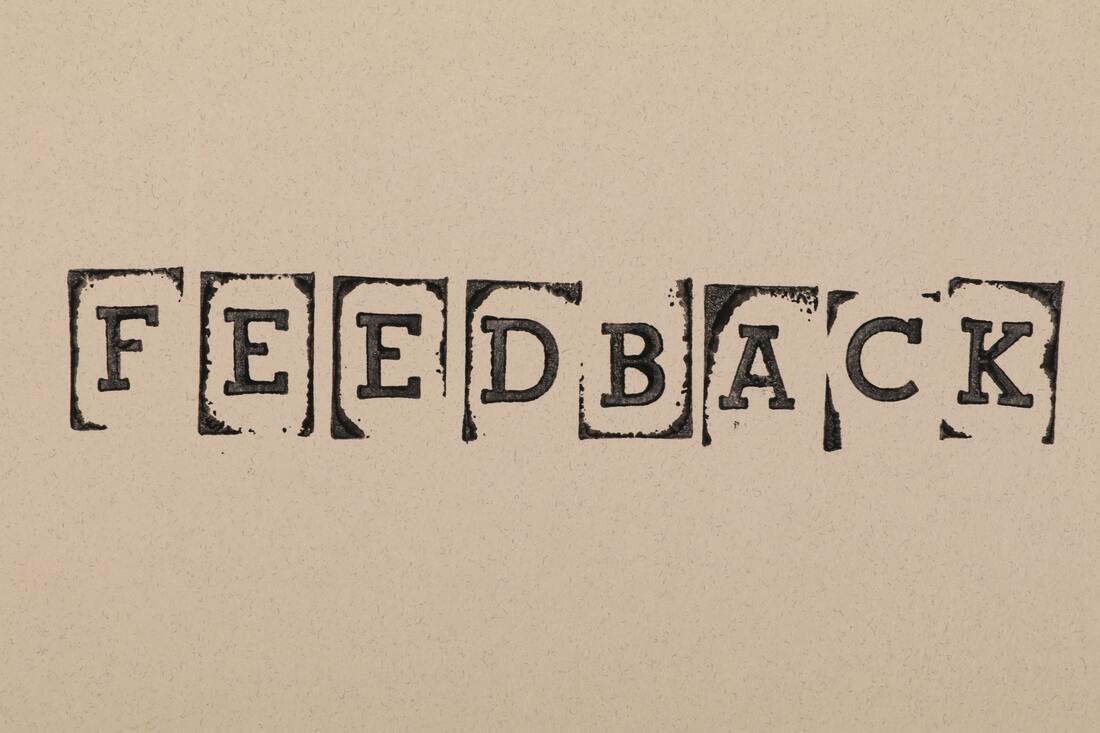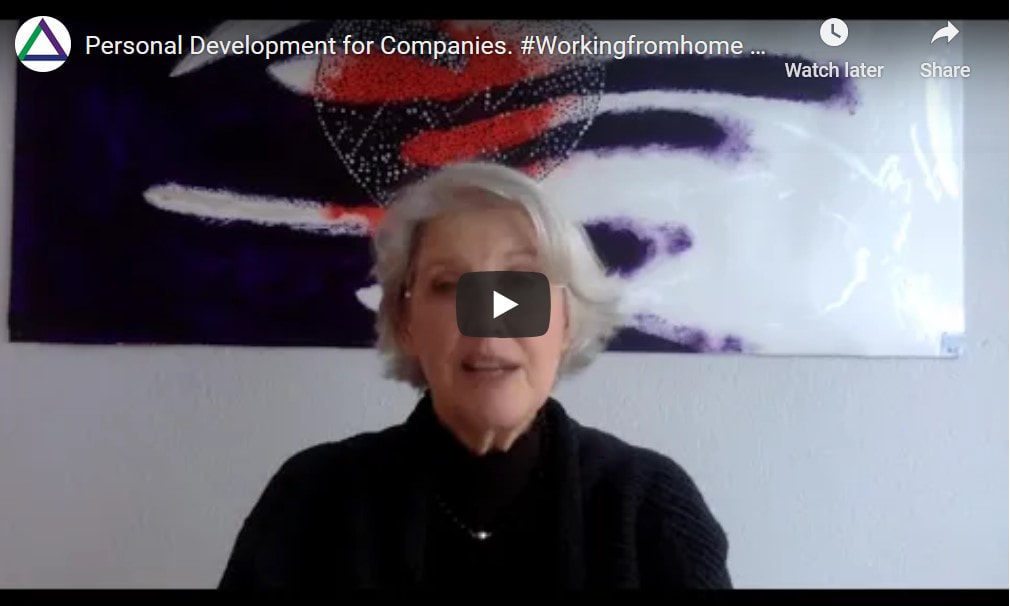|
Rapport is one of the elements that helps create a harmonious environment for good communication. For a conversation to be satisfying the parties involved need to feel comfortable, relaxed and safe. This environment makes difficult subjects easier to approach. A harmonious atmosphere offers the sense of cooperation not competition.
When communication flows easily you feel a sense of natural rapport. It is best to never assume anything about the other person. Rely on what you are told, and the sense you get from them. Ask questions if you need further information. It is best not to jump to conclusions and thereby make assumptions. During a telephone conversation when there is no eye contact, your voice must take over the role of our body language and facial expressions to establish rapport. During an online meeting how, you present yourself is very important. What makes rapport necessary? Having rapport is necessary to achieve the desired results from any conversation. For effective parenting, or in the context of business meetings, the outcome of a conversation could be limited without a harmonious feeling. For example, it could be more difficult to have a child cooperate and clean up his room if the request always comes with an angry voice, rather than that was encouraging and respectful. The same would apply in a business meeting. It might be easier reach an agreement or to close a deal if the atmosphere within the meeting is agreeable. The results can be much more effective when the rapport is natural. If rapport is missing, the quality of communication will suffer. Even the most enlightened of us can’t always stop ourselves from worrying about the future and asking ourselves “what if?” Underneath our connection to our Higher Self that we work so hard for, lurks the fear of future problems just waiting for an opening to ask us “what if?”
You know how it is…trouble is brewing at your job, layoffs could be coming. What if you lost your job? There have been a rash of pedestrian traffic accidents lately. What if your child is hit by a car? Your mother’s routine check-up turns into several follow-up appointments. What if she is sick? And on and on. Before we know it, our Chatterboxes have taken over. We are filled with fears about the future and the “what if” questions drag us down to our Lower Self. Many of us “what if” ourselves into a perpetual state of worry. “What if” questions come from our Lower Self, our inner chatterbox that wants us to live in perpetual fear. Susan wrote in Feel the Fear and Do It Anyway, “When the ‘what ifs’ are out in full force, the internal Chatterbox is at it again. You look at the unknown and try to predict the future; you try to take control of outside forces. Both are impossible. At this point you might notice you are driving yourself crazy.” Sometimes it’s necessary to provide feedback, but it can be a delicate situation.
You’ve probably heard that people don’t quit jobs; they quit bosses. In today’s hiring market with record numbers of employees resigning, that may or may not always be true. But bad bosses can definitely be a factor for employees who decide to leave. “I think that a lot of people are saying, ‘Hey, I’ve been putting up with this manager for way too long. All of a sudden, we are in an incredible job market, and I’m going to take my chances and test it out and see if there is a better fit and a better opportunity available,'” says Stephanie Lovell, head of marketing for Hirect, a hiring app for tech startup founders. If you’re considering leaving your job because of your manager, consider this: What if your boss is a fixer upper? A diamond in the rough? Someone who just needs some input on how to do a better job? Giving your boss feedback may not only be a way to correct your frustration; it can be helpful for your boss, too. It can also be tricky. But instead of diving into a list of grievances, consider these steps: Some are polar opposites of the typical cliche advice. Use them to unlock your high-performing future self. The morning shapes your day in mysterious ways. It shouldn’t as there are 24 hours in a day — but it does. Weird. I’m not one of those 4 A.M. cold shower peeps anymore. I prefer a realistic start to the day. It’s even more important for me because I have no job or boss to report to. So if I stuff up the morning, over time, I can stuff up my life and end up warming an office chair in a skyscraper of broken dreams, dying to escape (again). Do these things before 8 A.M. to crush your day. A scientific study proves self-care can only take you so far.
Forget meditation apps, Tony Robbins seminars and all-inclusive wellness retreats. Happiness’ business model is pyramid-shaped. A research article in The Journal of Positive Psychology says happiness comes from “making others feel good, rather than oneself.” Very in fashion with the pyramid scheme model: you can make your first steps towards happiness on your own — read self-help, maybe do some yoga — but if you really want to make it, get your friends and relatives involved somehow. I think this is a refreshing pivot. Pyramid schemes used to be all about scammy tactics to trick people into buying over-hyped multivitamins and surface cleaners. Now it could be the model that helps us understand what makes us happier. Happiness’ secret ingredient is “relatedness,” researchers say Relatedness is a basic psychological need. Some people think if we were not restrained by laws and moral codes, society would immediately spring into a rioting rampage of rape and murder and robbery. But our brains are wired to feel good when we nurture a sense of collaboration and community. We evolved to scratch each other's backs, and given how anatomically difficult it is to do it on your own, I believe Mother Nature wanted us to figure out we need one another after all. Like in any pyramid scheme, happiness is rigged against individuality. The researchers tested it: you can’t hack relatedness by sending good vibes back to yourself. And that’s why most happiness-seeking models don’t ultimately work: they lack this sense of community. Self-help, for one, has ‘self’ in its title That should be a red flag. Although I’m not saying we should neglect ourselves. I eat healthily, meditate and exercise, get my hours of sleep and sunshine, and drink lots of water (and since that kidney stone catastrophe of 2019 I’ve been extra diligent with that last one). I don’t think we could be physically and emotionally inclined to make others feel good unless we’ve done a bare minimum of self-directed work. But you know. Self-care can only take you so far. To keep improving your happiness levels, ditch the “self” and embrace the “help.” There’s no “I” in “next level.” Can money buy happiness? Getting the millions with a B is another one of those self-centered tactics that won’t work. It’s a pity some of us will remain skeptical right up until we’re crying in our Lambo. Here’s the thing: material wealth only increases happiness as far as our basic needs go. Once those are satisfied, the Musk bucks and Buffet bills won’t make our lives any merrier. Speaking of pyramids, do you know about Maslow’s hierarchy of needs? Money can take you into the first floor of the pyramid, the physiological needs, and up to the second floor, the safety needs. But once there, there is no more material deprivation to relief. Money can’t buy a VIP ticket to the penthouse of that pyramid: self-transcendence. The pinnacle of human fulfilment, where we find ourselves transcending the ego and focusing on something bigger. What about going spiritual? Those who don’t know how to set up funnels to get rich may opt for detachment instead. There are plenty of legitimate reasons why trying spirituality, studying Buddhism, going monastic, and meditating your way out of the illusion of the self. But spirituality’s been capitalized into yet another product for the “Health and Wellness” aisle. And if it were the ultimate solution, I’d expect Andy Puddicombe not to come back from the Himalayas after 10 years, meditating 16 hours a day, to create a subscription-based meditation app. Some of us just crave the frenzy of the west. As for me, I’m a writer. I need to be one with everything, but through an internet connection — which I suspect is something the Himalayas are in scarce of. Philosophy can make you wiser — and sadder Tell me if a cheerful person could’ve come up with the trolley problem: A runaway train is headed towards 5 workers on a railway line. The only way to save the workers is to operate a lever that would make the train go down a side rail. Problem is, there’s another worker on that one too. So, do you leave the lever untouched and have 5 workers killed, or do you switch the lever, killing the one worker on the side rail, but saving the other 5? I get philosophy it’s meant to make us wiser, sometimes by testing our moral virtue with thought experiments. But it doesn’t work for me. I’d prefer to imagine the 6 workers and me over a barbecue. In fact, it seems that if you drift too much into philosophical self-absorption, you’re bound to become depressive about existence. All for something that, in the end, no one cares about. Or as Plato put it: “That man is wisest who, like Socrates, realizes that his wisdom is worthless.” Self-centric tactics out of the way — how do we make others feel good? Here’s how I’m doing it: I don’t try to force it. Because that would be inauthentic, right? That would be the ol’ self-centric impulse showing, trying to hack my way to greater happiness. Instead, if the opportunity to make someone else feel good presents itself naturally, I take it. Even the little things can make an impact. In one study, researchers approached people that had just park their cars, gave them a few quarters, and told them to either feed their own parking meter or the meter of a stranger. Participants showed a greater lift in happiness levels when they fed others’ meters. But again, it’s the genuine gesture, not the quarters, that made them feel good. It’s the magic of relatedness, available to everyone and everywhere. You don’t need a researcher approaching you on the street after parking your car. Just get your head out of your ass and pay attention to these opportunities. One final tip from the pyramid scheme canon Just recruit five people. You know how it goes: make five people feel good, because if they make five more people feel good, and then those make five more people feel good… It sounds like an impossibly large chain, but if you do the math, you’ll see we can repeat this cycle only 14 times. After 14 cycles, you run out of people on the planet. That shows the true, shady nature of pyramid schemes — but also, how easy it could be to spread The Good Vibes. So now you have a legitimate reason to message your aunt on Facebook, without any pressure to segue the conversation into selling her a disinfectant. Go make those five people feel good. By Loudt Darrow Photo by arash payam on Unsplash (modified by author) What’s your most cherished value? We all have driving forces that keep us inspired and motivated, whether it’s supporting our loved ones, giving to those in need, finding fulfillment in our work, or making a difference in our community.
Determining your most cherished value and using it to your advantage can drastically change your approach to your work, infusing you with additional internal motivation, says Rebecca Greenbaum, Ph.D., professor of human resource management at Rutgers University’s School of Management and Labor Relations. That’s where value triggers come in. Value triggers are items that represent something that matters deeply to you — for example, by Thomas Oppong The world’s greatest thinkers problem-solvers and decision-makers rely on a set of principles, shortcuts, frameworks and smart tools to cut through complexity, difficult decisions and life-changing obstacles. These are a few of my thinking principles. I use them to improve and upgrade my intellectual life. All of them will help you think better, and I hope they inspire your own intellectual curiosity. Each thinking model offers a different framework that you can use to look at life. Feedback will always be ineffective if the recipient doesn’t understand it. Here’s how to make sure your conversations always achieve the intended result.
How effective are you at giving feedback? When managers answer this question, they often describe how and how often they deliver feedback to their employees: timely, direct, actionable, contextual, continuous. As long as the feedback is delivered often enough and directly enough, we reason that it’s effective. Unfortunately, this couldn’t be farther from the truth. A recent Harvard Business Review article by Michael Schaerer and Roderick Swaab titled “ Are You Sugarcoating Your Feedback Without Realizing It?” provides a grave reality check. Their research shows that many managers deliver inflated feedback unintentionally, and often think they’ve been much more clear then they have been. Indeed, in one study mentioned in the article conducted at a multinational nonprofit organization, Schaerer and Swaab observed that “the employees perceived feedback as being more positive than their managers thought they would.” When the feedback became more negative, the understanding gap widened. by Suzie Doscher, Executive Coach and Life Coach for Personal Development, Self-Help Author How can companies best support their employees during these difficult and challenging covid related times?. Working from home has added some extra issues to deal with. Individuals benefit from support dealing with:
(Coaching is not a substitute for counseling, psychotherapy, psychoanalysis, mental health care or substance abuse treatment) Get in touch - Let's talkEver been asked to say a few things about yourself? Perhaps you said you’re a good communicator, attentive to details, or a team player. The point being, we all define ourselves in a certain way. Here’s the paradox, though; It’s not what you say that is an accurate representation of who you are, but rather what you show yourself to be. That’s how people judge you. They respond to the image you project. As such, it’s critical to focus on what you do rather than what you say. If you want to sell yourself to the world in an authentic way, focus on these four really small things because they say a lot about you. This way, you’re guaranteed to make a lasting impression and command respect from people. By Caroline Bologna There's research to suggest some genres of music are better for productivity than others. As many of us continue to work from home amid the COVID-19 pandemic, we’ve seen big shifts in the way we conduct business. Without the background noise of the traditional office setting, many people have implemented music into their work days to fill the sound void and break up the monotony. Others have turned to music to help drown out the chaos of their home lives while they work. Music can help stimulate the senses and get the creative juices flowing. A 2005 study linked listening to music while working with quicker and higher-quality results. But research has also shown that some kinds are better for different work contexts than others. Learning how to respond to a situation rather than just reacting to it brings huge rewards. Needless to say, it is one of those behaviour changes that is easier said than done. However it can be achieved.
Responding rather than reacting means you will have taken time to consider the situation and which response and consequent outcome best suits you. The difference between reacting and responding:
To react means you are not able to influence your emotions and you act emotionally rather than from a place of clarity. What you can gain by stopping knee-jerk reactions is a sense of strength, achievement, power to influence, calmness, plus an increase in your self-esteem. The rewards will be felt not only in your private life, but also at work. by Suzie Doscher
Feel like you keep facing the same uphill struggle? Sometimes you create your own problems with your thoughts and beliefs. It is these particular thoughts that hold you back, keep you stuck and consequently limit you. In my coaching practice, as well as my own personal experience, I have witnessed how a self-sabotage routine can be created with these thoughts and beliefs. If you find that you keep coming back to the same type of situation again and again, it is well worth exploring if, in fact, you are running a self-sabotage routine. To break this self-sabotage cycle, you will need to first determine what this limiting thought or belief is. Once you have figured that out (by yourself, with the help of a friend/boss or qualified coach), consider the information below to help yourself make a lasting change. The best approach is to replace whatever you are thinking is with a thought that is more positive. For example:
'Balance - A Practical Handbook and Workbook for Life's Difficult Moments' by Suzie Doscher is about change and learning the necessary everyday skills required for life = life skills. The exercises help you improve the quality of your life, supports you in difficult moments and handle life’s challenging every-day situations better. It is a practical hands-on self coaching tool. Read or listen to it when you feel vulnerable, unsure of yourself, or ineffective in difficult and stressful moments. Learn how to handle your stress effectively with the help of the insights in the book. Bear in mind that there is no balance where there is stress – stress contradicts calmness and happiness. Choose which one you wish to have more of..it is up to you. The goal of this book is to help you create new opportunities, learn new behaviors, and become the best version of yourself. It is all about practical action oriented insights, steps and behavior change. Order Your Book Now
|
| By Brie Schwartz In Oprah Winfrey's latest book, The Path Made Clear (available March 26) she explores the power of setting intentions and accepting your calling. Through her inspirational words, we're reminded to follow our intuition—something she explains has been instrumental in her career. Her upcoming work compiles the key lessons she's learned on her journey to self-discovery, combined with wisdom and personal stories from those she admires—including Brené Brown, Elizabeth Gilbert, and Eckhart Tolle. |
Early in the The Path Made Clear, the media mogul describes the moment she discovered her purpose. It was August, 1978, and she was working as a news anchor and reporter on People Are Talking, a Baltimore talk show—but it didn't feel right. "I knew I was not my authentic self," she writes. "And my bosses certainly made no secret of their feelings. They told me I was the wrong color, the wrong size, and that I showed too much emotion."
Being successful in life requires you to make the right decisions for yourself and this takes knowing who you are and what you uniquely offer. When you say yes to the right projects and job for yourself, you are able to beautifully handle the work and the obstacles that inevitably arise as you make something happen in the world.
Susan brings you a cutting edge, revolutionary body of knowledge called BG5 that applies the principles of individuality from Human Design. Using the knowledge gained from BG5 analyses catapults you into a new way of dealing with yourself and others which leads to unprecedented results.
Susan brings you a cutting edge, revolutionary body of knowledge called BG5 that applies the principles of individuality from Human Design. Using the knowledge gained from BG5 analyses catapults you into a new way of dealing with yourself and others which leads to unprecedented results.
For more information about how my colleague Susan Begeman Steiner works with teams and individuals check out her website: sbsteinercoaching.com
by Mayo Oshin, Juggling ideas at the intersection of science, art and philosophy.
We’d like to think that we can multitask — respond to emails, text messages, toggle between multiple tabs on a browser and scroll through social media feeds, whilst working on important tasks — but, our brains would say otherwise.
According to neuroscientists, our brains aren’t built to do more than one thing at a time. And when we try to multitask, we damage our brains in ways that negatively affect our well-being, mental performance and productivity.
Here are nine ways multitasking is killing your brain and productivity.
1. Multitasking can lead to permanent brain damage
A study from the University of Sussex (UK) compared the brain structure of participants with the amount of time they spent on media devices i.e. texting or watching TV.
The MRI scans of the participants, showed that the high multitaskers had less brain density in
We’d like to think that we can multitask — respond to emails, text messages, toggle between multiple tabs on a browser and scroll through social media feeds, whilst working on important tasks — but, our brains would say otherwise.
According to neuroscientists, our brains aren’t built to do more than one thing at a time. And when we try to multitask, we damage our brains in ways that negatively affect our well-being, mental performance and productivity.
Here are nine ways multitasking is killing your brain and productivity.
1. Multitasking can lead to permanent brain damage
A study from the University of Sussex (UK) compared the brain structure of participants with the amount of time they spent on media devices i.e. texting or watching TV.
The MRI scans of the participants, showed that the high multitaskers had less brain density in
Suzie Doscher is a Professional Executive Coach focusing on Personal Development. Located in Zurich, Switzerland. Her approach to personal development is practical and successful.
Suzie is happiest when helping people.
Her vision is everyone should have access to techniques for personal growth and development. This was the motivation behind her book.
Suzie is happiest when helping people.
Her vision is everyone should have access to techniques for personal growth and development. This was the motivation behind her book.















 RSS Feed
RSS Feed

